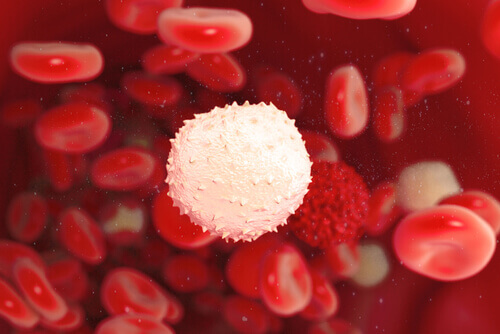6 Muscle Warning Signs that Tell You Something May Be Wrong

All of the voluntary and involuntary movements you make each day involve muscle contractions. Your complex muscular system is made up of a total of more than 650 muscles that work with your bones to support your body.
Your muscles are essential for any activity that implies movement and strength. This is why it’s important to keep them in good shape. When something is wrong, they’ll send you warning signs so you can reduce your risk of more serious problems.
While many people ignore these muscle warning signs, these aches and pains may be telling you something important about your health. Discover what it might be!
1. You have an electrolyte imbalance

Electrolyte imbalances are often seen in athletes and people who do physical labor. The excessive sweating that happens during these activities translates into a loss of mineral salts, which can eventually lead to imbalances.
While water helps replace fluid lost, you should always eat healthy foods and drink nutritious beverages.
Ignoring this may increase your risk of getting injured and may cause pain and cramps.
Check this article out: 5 Foods to Include in Your Breakfast to Strengthen Your Muscles
2. You tore a muscle
Sudden pain when doing certain movements usually means that you have torn a muscle. Unlike normal soreness after working out, this kind of pain happens immediately and only while doing certain activities.
It varies in intensity according to the seriousness but it generally gets worse when you exert yourself.
3. Your immune system is weakened

Pain and muscle weakness are the first muscle warning signs of an underactive immune system. Your muscles will feel tired often when your immune system isn’t responding to illness-causing agents.
If you feel sore for no apparent reason, then it may mean that you’re about to get sick. That’s because your body is starting to use its inflammatory processes to attack the virus. This may be affecting your muscles.
4. You’re dehydrated: One of the muscle warning signs
While there are hundreds of reasons to drink enough water, many people still aren’t getting enough. This life-giving fluid plays a role in the body’s most vital processes, and your muscular system is no exception.
Water is necessary for proper cellular oxygenation of muscle tissue. When you don’t drink enough, you’re more likely to get muscle cramps. While this can be caused by many other things, many times it’s due to dehydration.
5. You need to rest

In a high-intensity exercise session, your muscles may get micro-tears that show up as pain. As they heal, you build muscle mass as long as you eat properly, too. However, for this process to work, your body needs some time to rest.
If you keep working out in spite of the pain, you could get injured and seriously affect your strength and mobility.
We recommend reading: 8 Things that Happen to You When You Don’t Sleep Enough
6. You have anemia
A tingling sensation, night cramps, and muscle weakness make up a group of symptoms that may mean anemia.
This condition, characterized by a low red blood cell production, makes your body less able to oxygenate tissues, and this may affect your muscles.
Anemia is associated with iron deficiency, though it can also come from low amounts of other important nutrients. Eating foods rich in iron and essential amino acids can help with recovery.
In fact, these nutrients increase your energy level in your whole body, helping get back your muscle strength.
Now that you know about these muscle warning signs, take the time to figure out if your pain is telling you something. While they’re not serious and are usually just sporadic, it’s always a good idea to see a doctor to determine whether you need treatment.
All cited sources were thoroughly reviewed by our team to ensure their quality, reliability, currency, and validity. The bibliography of this article was considered reliable and of academic or scientific accuracy.
- Noonan TJ, Garrett WE Jr. Muscle strain injury: diagnosis and treatment. J Am Acad Orthop Surg. 1999 Jul-Aug;7(4):262-9.
- Kwiecien SY, McHugh MP. The cold truth: the role of cryotherapy in the treatment of injury and recovery from exercise. Eur J Appl Physiol. 2021 Aug;121(8):2125-2142.
- Lanier JB, Park JJ, Callahan RC. Anemia in Older Adults. Am Fam Physician. 2018 Oct 1;98(7):437-442.
- Shieh PB. Muscular dystrophies and other genetic myopathies. Neurol Clin. 2013 Nov;31(4):1009-29.
- Dimachkie MM, Barohn RJ. Myopathies. Neurol Clin. 2014 Aug;32(3):xiii-xiv.
- Shapiro F, Specht L. The diagnosis and orthopaedic treatment of inherited muscular diseases of childhood. J Bone Joint Surg Am. 1993 Mar;75(3):439-54.
This text is provided for informational purposes only and does not replace consultation with a professional. If in doubt, consult your specialist.








